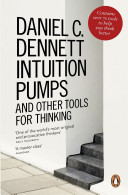Using Lay Audiences to Force Explanation
In many fields—not just philosophy—there are controversies that seem never-ending and partly artifactual: people are talking past one another and not making the necessary effort to communicate effectively. Tempers flare, and disrespect and derision start creeping in. People on the sidelines take sides, even when they don’t fully understand the issues.
It can get ugly, and it can have a very straightforward cause. When experts talk to experts, whether they are in the same discipline or not, they always err on the side of under-explaining. The reason is not far to seek: to overexplain something to a fellow expert is a very serious insult—“Do I have to spell it out for you?”—and nobody wants to insult a fellow expert. So just to be safe, people err on the side of under-explaining. It is not done deliberately, for the most part, and it is almost impossible to keep from doing—which is actually a good thing, since being polite in an unstudied way is a nice character trait in anyone. But this gracious disposition to assume more understanding than is apt to be present in one’s distinguished audience has an unfortunate by-product: experts often talk past each other.
There is no direct cure: entreating all the experts present at a workshop or conference not to under-explain their positions may be met by earnest promises, but it won’t work. If anything it will make matters worse since now people will be particularly sensitive to the issue of inadvertently insulting somebody. But there is an indirect and quite effective cure: have all experts present their views to a small audience of curious nonexperts (here at Tufts I have the advantage of bright undergraduates) while the other experts listen in from the sidelines. They don’t have to eavesdrop; this isn’t a devious suggestion. On the contrary, everybody can and should be fully informed that the point of the exercise is to make it comfortable for participants to speak in terms that everybody will understand. By addressing their remarks to the undergraduates (the decoy audience), speakers need not worry at all about insulting the experts because they are not addressing the experts. (I suppose they might worry about insulting the undergraduates, but that’s another matter.) When all goes well, expert A explains the issues of the controversy to the undergraduates while expert B listens. At some point B’s face may light up. “So that’s what you’ve been trying to say! Now I get it.” Or maybe the good effects will have to wait until it is B’s turn to explain to the same undergraduates what the issues are, and provoking just such a welcome reaction in A. It may not go perfectly, but it usually goes well and everybody benefits. The experts dissolve some of the artifactual misunderstandings between their positions, and the undergraduates get a first-rate educational experience.
Several times I have set up such exercises at Tufts, thanks to generous support from the administration. I handpick a small group of undergraduates (less than a dozen) and brief them on their role: they are not to accept anything they don’t understand. They will be expected to raise their hands, to interrupt, to alert the experts to anything they find confusing or vague. (They do get required reading to pore over beforehand so that they are not utter novices on the topic; they are interested amateurs.) They love the role, and so they should; they are being given made-to-order tutorials from some big guns. The experts, meanwhile, often find that being set the task (well in advance) to explain their position under these conditions helps them find better ways of making their points than they had ever found before. Sometimes these experts have been “protected” for years by layers of fellow experts, postdocs, and advanced graduate students, and they really need the challenge.
Notes:
Often when experts debate, they fall into the trap of assuming one another's expertise and fail to explain basic concepts, with the result that they beging talking past one anothers. An inventive solution to this is to have a group of non-experts be the audience and have the debaters address them instead.
Folksonomies: discourse rhetoric debate expertise explanation
Taxonomies:
/family and parenting/children (0.508244)
/business and industrial (0.467083)
/law, govt and politics/legal issues (0.363380)
Keywords:
experts (0.989292 (negative:-0.053249)), inadvertently insulting somebody (0.830063 (negative:-0.934135)), nice character trait (0.783665 (positive:0.585015)), first-rate educational experience (0.756818 (positive:0.350509)), undergraduates (0.755648 (negative:-0.051275)), fellow expert (0.752091 (negative:-0.316968)), bright undergraduates (0.689275 (positive:0.550228)), experts debate (0.661051 (neutral:0.000000)), inventive solution (0.638472 (neutral:0.000000)), Force Explanation (0.636242 (neutral:0.000000)), basic concepts (0.635537 (negative:-0.452514)), Lay Audiences (0.626713 (neutral:0.000000)), devious suggestion (0.624566 (positive:0.408976)), straightforward cause (0.623463 (negative:-0.289828)), necessary effort (0.620668 (neutral:0.000000)), unfortunate by-product (0.620231 (negative:-0.429698)), fellow experts (0.620191 (positive:0.374136)), gracious disposition (0.619249 (negative:-0.429698)), decoy audience (0.616338 (neutral:0.000000)), earnest promises (0.612809 (negative:-0.322642)), unstudied way (0.610555 (positive:0.585015)), small audience (0.607944 (positive:0.478334)), everybody benefits (0.607512 (positive:0.640014)), curious nonexperts (0.604098 (positive:0.478334)), direct cure (0.600974 (negative:-0.448586)), good thing (0.600161 (neutral:0.000000)), made-to-order tutorials (0.599491 (positive:0.215461)), effective cure (0.597894 (positive:0.732945)), generous support (0.594641 (positive:0.762297)), artifactual misunderstandings (0.593583 (negative:-0.323385))
Entities:
Tufts:Organization (0.811656 (positive:0.473723)), doing—which:City (0.533117 (neutral:0.000000)), A:Company (0.497293 (positive:0.538225))
Concepts:
Audience theory (0.929433): dbpedia | freebase
Audience (0.857528): dbpedia | freebase
Expert (0.811328): dbpedia | freebase | opencyc
Ad hominem (0.769950): dbpedia | freebase | yago
Understanding (0.728682): dbpedia | freebase | opencyc
Insult (0.721242): dbpedia | freebase
Expert witness (0.717658): dbpedia | freebase
A Good Thing (0.690049): dbpedia | freebase






